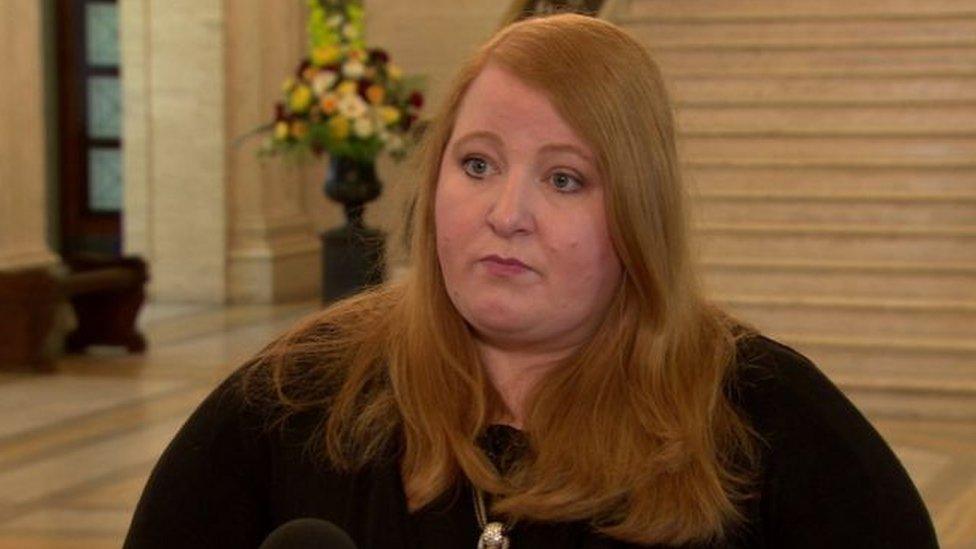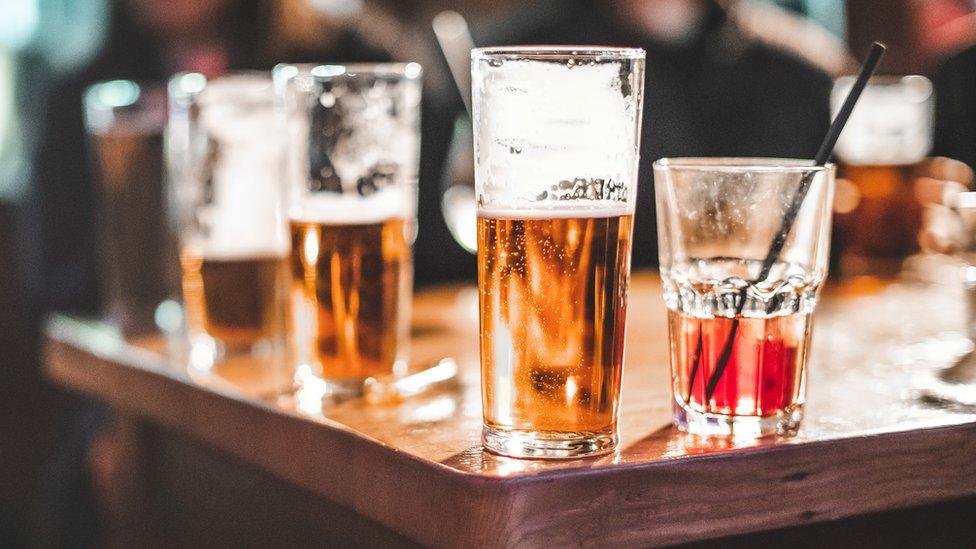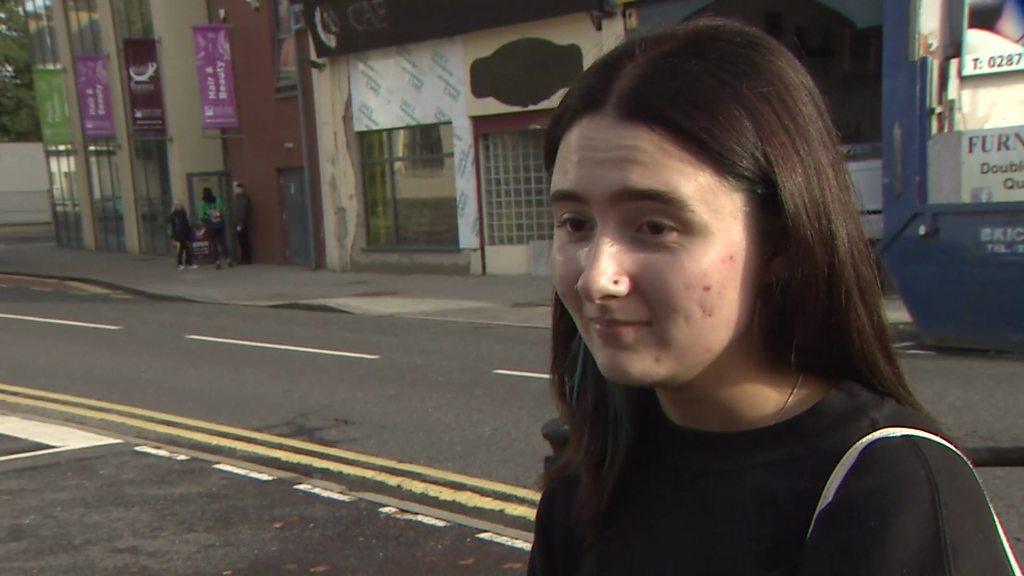Drink spiking: PSNI investigating 17 reports this month
- Published

People who suspect their drinks have been spiked are urged to report it as quickly as possible
The Police Service of Northern Ireland (PSNI) is investigating 17 reports of suspected drink spiking since the beginning of October.
Supt Arnie O'Neill, who is leading the PSNI's response to spiking, said the figure was higher than usual and may be partly due to media coverage.
He said all allegations of drink spiking are "robustly investigated".
He and Justice Minister Naomi Long have urged victims to contact police as soon as possible to secure evidence.
"We want people to come forward as early as possible to give us the best opportunity to investigate these crimes," Mr O'Neill told the BBC's Talkback programme.
He said some allegations of spiking were hard to detect and timing was a key factor in a criminal inquiry.
"These substances, they metabolise out of your system very, very quickly," he explained.
"They leave no trace, so they are very, very difficult to investigate and that's why it's really, really important that we are notified as early as possible."
The PSNI has received a total of 34 allegations of spiking so far this month but in half of the cases the investigation has stopped because officers said there was "no evidence of spiking".
Supt O'Neill said October's figures were a "bit higher" than previous months and suggested it was partly due to the gradual reopening of the hospitality sector after Covid-19 lockdowns.
He also suggested it was partly due to recent national and local media coverage of spiking, which has "probably encouraged" some victims who otherwise may not have wanted to come forward to contact police.
"This isn't something that's been very prevalent in Northern Ireland over the last number of years," he said.,
"It's certainly something that hasn't been taking a lot of media attention up until now and actually it's only in the last couple of days that it's really gotten a bit of traction."
'Women still feel ashamed'
The justice minister also said recent media campaigns had helped to raise awareness of the fact that spiking was a serious crime.
But she added that more had to be done to encourage early reporting.

Naomi Long says there is more work to do so that all victims of spiking have the confidence to report it
"A lot of women understandably - particularly if they've been out for drinks with friends, if they feel that they've become a little bit intoxicated in a way that's unexpected - tend not to jump to the conclusion that it's as a result of drink spiking," said Mrs Long.
"[They may be] nervous about going and claiming that it might be [spiking] for fear that it wasn't, that they'd just had a bit too much to drink."
"Because of that they're more reluctant to report - they're afraid of the shame that goes with this.
"It says a lot about the culture that we have as a society that women still feel ashamed of being subjected to assault and violence, when it should be the perpetrators who should feel the shame," the minister added.
"There's a lot of work to do in terms of building up confidence; in terms of women being willing to come forward; being confident that they will be listened to and believed, and also doing so quickly enough that they evidence came be collected."
More patrols
Supt O'Neill has been examining PSNI figures on spiking going back to the start of this year.
Since January 2021, one arrest has been made and two people have been reported to prosecutors but the cases are still going through the criminal justice system.
"I'm not going to say that the police have failed because any time that we receive a report that someone has been spiked or someone has had their drinks contaminated, they are robustly investigated," he said.
Supt O'Neill also said the PSNI would work closely with pubs, clubs and other venues to protect the public from spiking, and there would be more night-time police patrols as nightclubs reopen this weekend.
Related topics
- Published27 October 2021

- Published20 October 2021

- Published20 October 2021
